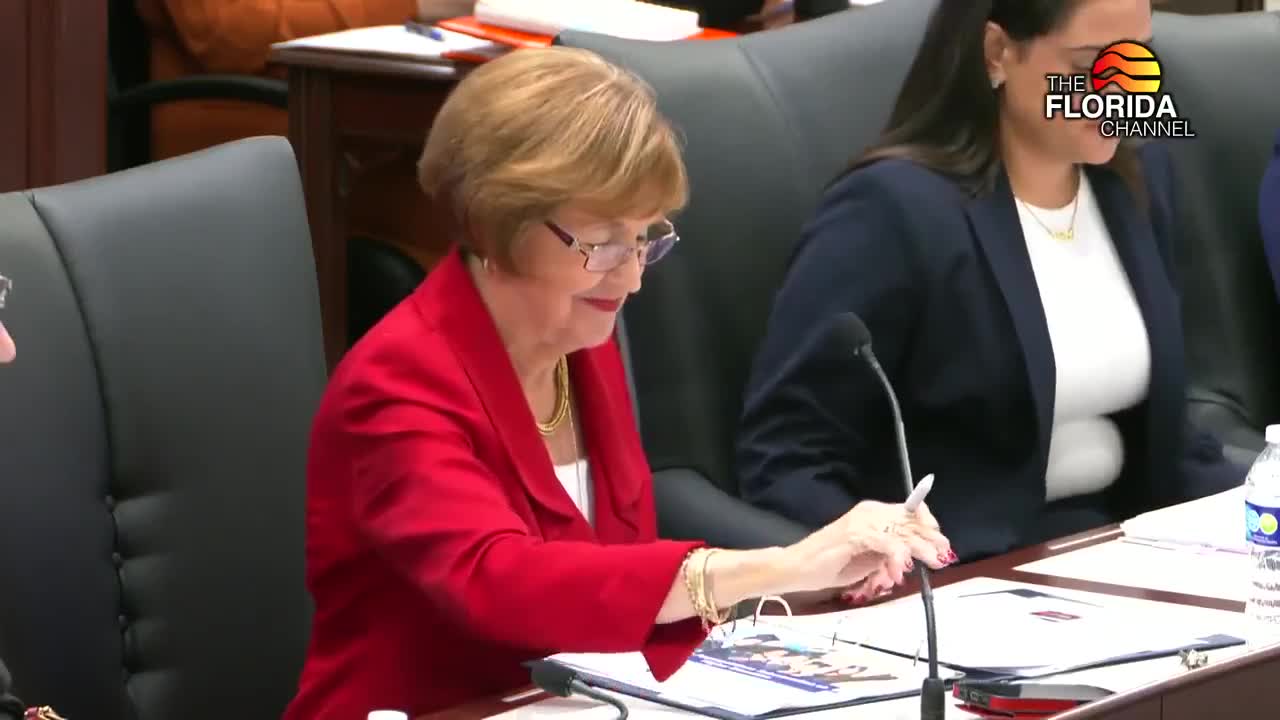Florida education officials seek millions to expand college workforce programs
Get AI-powered insights, summaries, and transcripts
Subscribe
Summary
Senior Chancellor Kevin O'Farrell told the Senate Higher Education Appropriations Committee the Department of Education is requesting multiple increases to support workforce programs across Florida colleges and career-technical institutions, including restoring workforce capitalization funding and raising operational support.
Senior Chancellor Kevin O'Farrell of the Florida Department of Education told the Senate Higher Education Appropriations Committee that the department's legislative budget request seeks targeted increases to support career, technical and adult education across the state.
O'Farrell said the department is requesting a 10.38% increase for adult education and a 2.86% increase for Florida College System institutions. He highlighted specific requests including restoring workforce capitalization funding to $100 million (from $40 million last year), a requested $70 million increase for the Florida College System program fund, and a $23 million increase for the district workforce (technical college) development fund.
Why it matters: O'Farrell said the requested increases are intended to sustain programs created with one-time capital grants and to fund ongoing operational costs — including instructor and staff pay, equipment maintenance and program sustainability. "We want to remain number 1 in higher education," O'Farrell told the committee, arguing that operational dollars are necessary to convert capital investments into durable training capacity.
O'Farrell summarized grant programs and recent awards. He said the workforce capitalization incentive grant (workforce cap) has awarded $240 million over its life and that, in the most recent cycles, $100 million was awarded to 49 school districts and 12 Florida College System institutions. He also described the Pathways to Career Opportunity grant (referred to in testimony as "Peacock"), used to fund apprenticeships and pre-apprenticeships, which has awarded more than $105 million to 124 agencies and that recent releases included $14.6 million for general apprenticeship grants and a separate teacher-apprenticeship allocation.
On scholarships and short-term supports, O'Farrell described the Open Door scholarship program (converted into a scholarship program in the 2023–24 cycle) and said it totals $105 million. He said that since February 2024, 44,605 students in district and postsecondary CTE programs have benefited and that the scholarship can cover 100% of tuition and fees and, optionally, stipends up to $1,500 per student depending on the local educational agency.
Data presented: O'Farrell reported record participation in workforce programming across sectors. He said combined workforce headcount (Florida College System institutions plus district technical colleges) was nearly 500,000; Florida College System institutions served more than 686,000 headcount students in 2024–25; completions across those workforce programs were roughly 81,000 in the most recent year; and dual-enrollment headcount was about 104,000, which the department estimates saved families roughly $95 million.
O'Farrell also described program growth: he said roughly 750 frameworks exist statewide and that postsecondary inventory contains about 572 frameworks; local educational agencies are offering more programs now (about 9,276 program offerings reported, versus about 5,825 in 2017–18), which he characterized as a 60% increase in program adoption across LEAs.
Committee members raised follow-up topics O'Farrell said the department would provide: a detailed breakdown of the $70 million and $23 million operational requests, additional information on job placement and salary outcomes for completers, and technical details about clock-hour-to-credit conversions (particularly for LPN-to-RN pathways and related programs).
O'Farrell also described accountability tools used by the department, including an annual CTE audit rule that compares programs against retention, completion and employment metrics; programs failing metrics beginning in 2026 would be slated for phased closure unless supplemental evidence is provided.
O'Farrell: "The apprenticeship model is so important ... it's an employer-driven model that really produces the talent they need in the time that they need," and he noted the teacher-apprenticeship pathway has funded programs in school districts and charter schools.
Ending: The department asked the committee to consider the increases in the upcoming legislative session and said it would return with further details on placements, program-level data and funding models.
